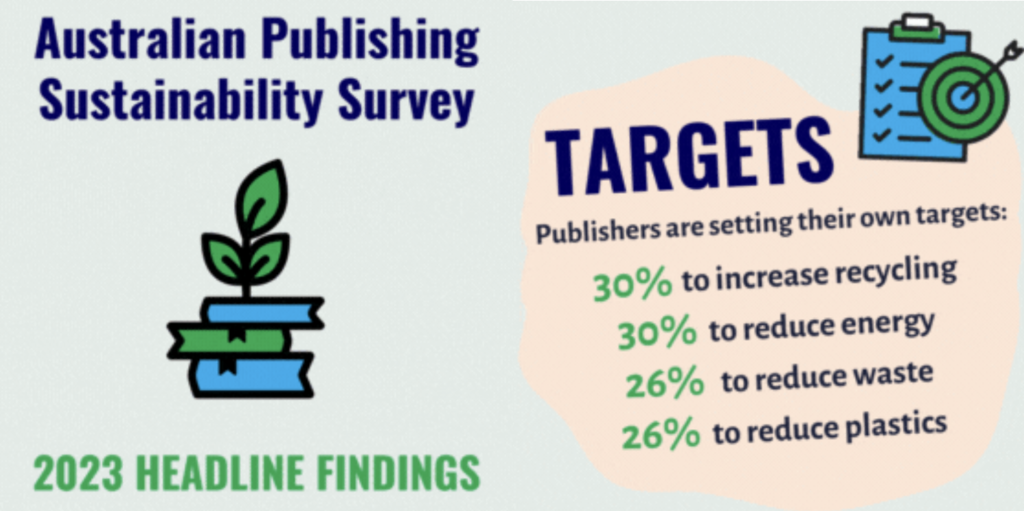Conducted in September and October 2023, the survey gathered responses from 27 publishers across various sectors, including trade, education, and academic publishing. The results reveal a growing commitment to sustainability, with several publishers already taking significant steps to reduce their environmental impact.
Key findings from the survey include that 56% of respondents have appointed a dedicated person or team to oversee sustainability initiatives within their organizations. Over a quarter of these publishers are setting targets to reduce energy consumption, waste, and plastic use, while also increasing recycling efforts. However, only 19% are currently calculating their carbon emissions, highlighting an area for further improvement.
The survey also examined the sustainability of book production, distribution, and marketing. 33% of respondents reported using 100% FSC or recycled paper and cardboard for book printing, while an additional 22% use such materials for paper but not cardboard.
In response to these findings, the APA’s Sustainability Working Group has outlined five recommendations for publishers. UNSW Press CEO and chair of the Sustainability Working Group, Kathy Bail, emphasized the importance of publishers’ participation: It’s important for publishers to make a start. With these recommendations, every publisher can identify some achievable wins. For instance, we know that appointing someone or a team in your organisation to look after sustainability can be a powerful driver for positive change.
All publishers who responded to our survey believe there are many areas where we can share experiences and improve our practices. Let’s get on with it and contribute actively to a global effort to make our books more environmentally sustainable.
Read more on the results of the survey here! It is also already up on the IPA SDG Dashboard as a great example of publishers and their associations working on the SDGs. See more examples and join our 100 Actions campaign here.

